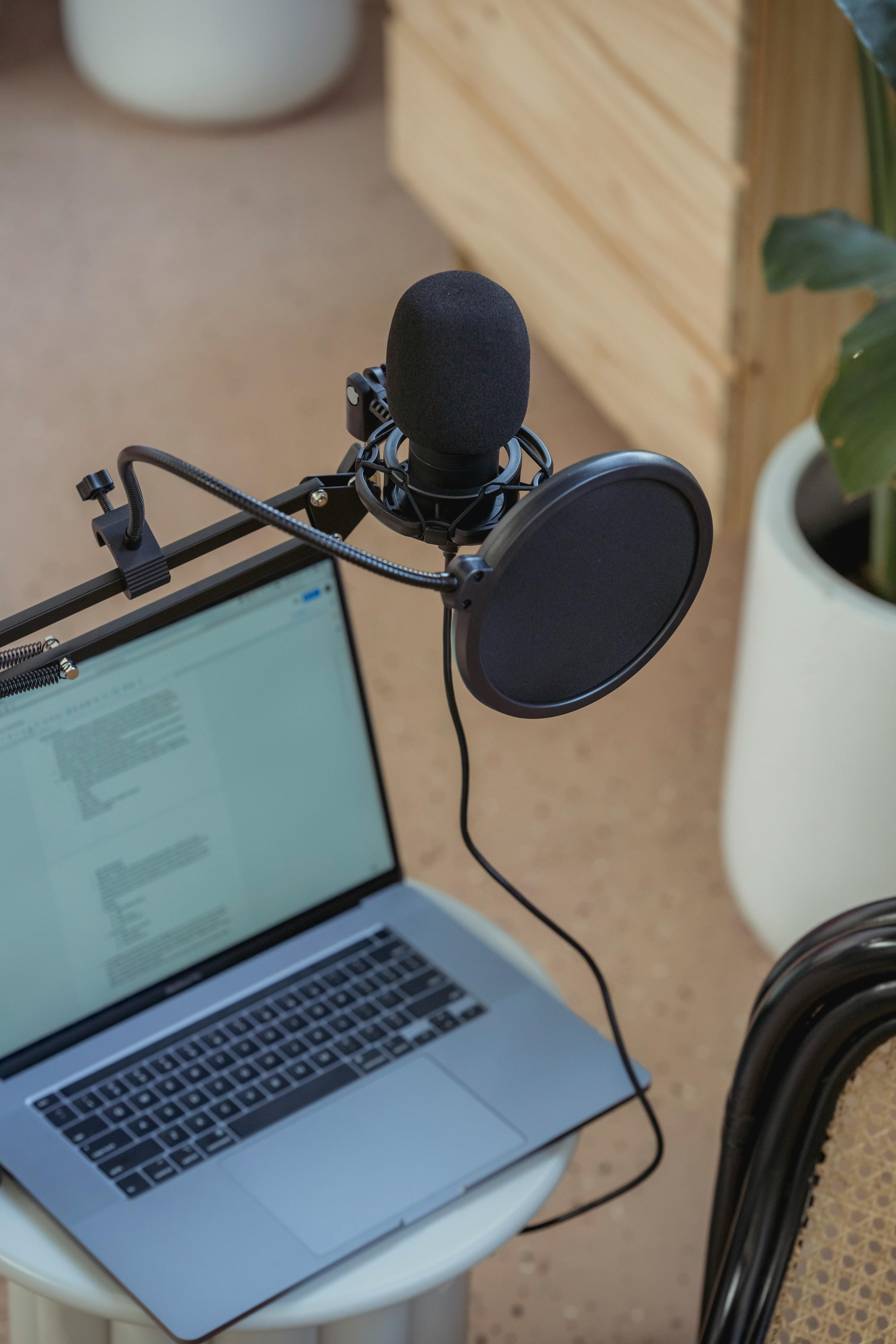
How to Start a Podcast and Actually Make Money Doing It
There’s never been a better time to start a podcast. From true crime fanatics to indie musicians, from business coaches to people who just really like talking about coffee, podcasts are everywhere. They’ve become the modern campfire, a place where stories, advice, and ideas get passed around—without anyone having to actually leave their couch.
And yet… starting one can feel intimidating. Where do you even begin? What equipment do you need? How do you get listeners? And most importantly, can you actually make money from it?
Fear not. At ContentHub.Guru, we’ve put together the ultimate beginner’s guide to starting a podcast and monetizing it—without drowning in tech jargon or spending a fortune.
Step 1: Decide What Your Podcast Is About
Before you even touch a microphone, ask yourself the golden question: what is your podcast’s purpose?
-
Is it educational, like explaining crypto to your grandma?
-
Entertainment-focused, like sharing wild stories about small towns you’ve visited?
-
Interview-based, like chatting with experts in your field?
Your theme isn’t just for you—it’s for your audience. People need to know why they should listen. And remember, specificity wins. “Podcasts about life” is too broad. “Podcasts about tiny urban gardens and how to grow tomatoes on your balcony”? Now we’re talking.
Step 2: Name, Branding, and Identity
A podcast name is like a first impression—it should be memorable, easy to spell, and ideally, hint at what the show is about.
-
Think short and punchy – “Stuff You Should Know” is much easier to remember than “A Podcast Where We Talk About All the Things That We Find Interesting.”
-
Check availability – Google the name, search podcast directories, and make sure the domain is free if you want a website.
Branding goes beyond your name. Think cover art, intro music, and even a tagline. This is where you start building your podcast personality—your “voice before the voice,” if you will.
Step 3: Get Your Equipment
Good news: you don’t need a studio the size of a football field. You need clarity over complexity.
Essential gear:
-
Microphone – USB mics like the Blue Yeti or Audio-Technica AT2020 are popular for beginners.
-
Headphones – To catch audio issues before your listeners do.
-
Recording software – Audacity (free), GarageBand (free on Mac), or Adobe Audition (paid) will do the trick.
-
Optional – Pop filter, audio interface, or a quiet room with soft surfaces to reduce echo.
Pro tip: content quality matters more than studio polish at the start. If your audience can hear and understand you, you’re ahead of 80% of new podcasters.
Step 4: Plan Your Episodes
Before you record, outline a few episodes. Think about:
-
Episode length: 20–45 minutes works for most beginners.
-
Format: solo, co-hosted, interviews, storytelling.
-
Structure: intro, main content, call-to-action, outro.
Consistency is key. Your listeners should know what to expect and when to expect it.
Step 5: Record and Edit
Hit record, and don’t panic if it’s awkward. Every podcaster sounds clumsy in their first few episodes. You’ll get better.
Editing is where you polish: cut silences, remove “ums” and “uhs,” and balance audio levels. You don’t need perfection, but clarity is critical.
Step 6: Publish and Distribute
Upload your podcast to a hosting platform (like Libsyn, Podbean, Anchor, or Buzzsprout). Then, submit it to major directories:
-
Apple Podcasts
-
Spotify
-
Google Podcasts
-
Stitcher
Your goal: be wherever your audience is listening.
Step 7: Promote Your Podcast
Creating great content isn’t enough—you need to get it in front of people. Try:
-
Sharing on social media
-
Guest appearances on other podcasts
-
Collaborating with influencers in your niche
-
Posting show notes and transcripts on a website like ContentHub.Guru to boost SEO
Step 8: Monetize Your Podcast
Ah, the money question. There are several ways to turn listeners into income:
-
Sponsorships & Ads – Companies pay you to mention their product. Typically, payment is based on CPM (cost per 1,000 downloads).
-
Listener Support – Platforms like Patreon let listeners pay monthly for bonus content.
-
Merchandise – Sell branded products like t-shirts, mugs, or notebooks.
-
Affiliate Marketing – Promote products you love and earn a commission on sales.
-
Courses & Services – If your podcast shares expertise, offer workshops or consulting.
Pro tip: focus on building your audience first. Monetization works best when people trust and engage with your show.
How to Make Your Podcast Stand Out
Niche down – The more specific, the better.
Invest in storytelling – Stories stick, stats don’t.
Engage with listeners – Reply to comments, emails, or shout them out on episodes.
Keep improving – Track downloads, listener feedback, and reviews.
FAQ: Podcasting Basics
Q1: Can I start a podcast for free?
Yes! Platforms like Anchor allow free hosting and distribution. Paid platforms offer more analytics and storage.
Q2: How long should my episodes be?
20–45 minutes is a sweet spot for beginners. Consistency matters more than exact length.
Q3: Do I need a big following to monetize?
No, but sponsors and listener support work better with consistent downloads. Even small, engaged audiences can be profitable.
Q4: How often should I release episodes?
Once a week is standard, but monthly is fine if you maintain quality and consistency.
Q5: Can I repurpose podcast content?
Absolutely! Turn episodes into blog posts, social media clips, or email newsletters via ContentHub.Guru to expand reach.
How to Start Monetizing Early
-
Focus on growing your audience first.
-
Join affiliate programs related to your niche.
-
Offer bonus content via Patreon or exclusive feed.
-
Pitch sponsors once you have steady downloads.
-
Repurpose content into courses, e-books, or paid guides.
The key: monetize ethically. Your listeners trust you—don’t compromise that for quick cash.
Final Thoughts
Podcasting is one of the most rewarding ways to share ideas, build a community, and yes—make money. It’s part art, part strategy, part hustle.
At ContentHub.Guru, we believe anyone can start a podcast, grow an audience, and monetize it—if they focus on authenticity, consistency, and storytelling.
Your first episode may be rough. Your first sponsor may be tiny. Your first dollar may feel symbolic—but that’s how legends start. Hit record, tell your story, and watch your voice find its audience.
Suggested for You

Building a Personal Brand as a Creator: How to Stand Out Without Selling Out
Reading Time: 6 min
Learn how to build a personal brand as a creator that attracts the right audience and opportunities....
Read More →
Affiliate Marketing for Content Creators: How to Turn Passion Into Profit
Reading Time: 6 min
Learn how content creators can make money with affiliate marketing without compromising authenticity...
Read More →
How Much Do Content Creators Really Make? The Truth Behind the Numbers
Reading Time: 6 min
How much do content creators really make in 2025? From YouTubers to TikTok stars, this ContentHub.Gu...
Read More →
How to Monetize a Blog: A Beginner’s Guide to Turning Words Into Income
Reading Time: 6 min
Wondering how to make money blogging? This witty, beginner-friendly guide from ContentHub.Guru cover...
Read More →
Comments